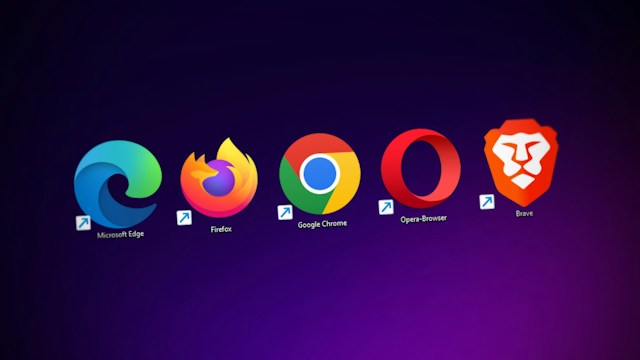When it comes to web browsing, the choices seem endless. But have you considered the power and freedom that open-source web browsers bring to your online experience? In this exploration, we’ll delve into the fascinating world of open-source browsers, examining their privacy features, performance, and user experience. Let’s navigate through the digital landscape together.
Why Open Source Matters
Open source isn’t just a buzzword; it’s a philosophy that drives innovation and collaboration. In the realm of web browsers, this translates to transparency, security, and a community-driven approach. The open-source ethos ensures that the code is open for scrutiny, reducing the risk of hidden vulnerabilities. Unlike their proprietary counterparts, open-source browsers invite users to contribute, shaping the software for the better.
The Giants: Firefox and Chromium
Two names that stand tall in the open-source browser arena are Mozilla’s Firefox and Google’s Chromium. These heavyweights have paved the way for a more decentralized browsing experience. Firefox, known for its commitment to privacy, boasts features like Enhanced Tracking Protection, blocking malicious trackers and scripts. On the other side, Chromium, the open-source project behind Google Chrome, emphasizes speed and compatibility, creating a seamless browsing experience.
The Rising Stars
While Firefox and Chromium dominate, several rising stars bring unique flavors to the open-source browsing scene. Brave, built on Chromium, takes privacy to the next level with its native ad-blocking and anti-tracking features. Waterfox, a Firefox fork, puts an emphasis on performance and customization, making it a favorite among power users. These alternatives offer more than just a browsing experience; they provide a glimpse into a future where users have greater control over their online presence.
Privacy Features Unleashed
Privacy is paramount in the digital age, and open-source browsers are at the forefront of this battle. Let’s break down some key privacy features that make these browsers a compelling choice:
- Ad and Tracker Blocking: Brave’s built-in ad-blocker and Firefox’s Enhanced Tracking Protection keep intrusive elements at bay.
- Secure DNS: Open-source browsers often allow users to choose their DNS provider, adding an extra layer of security.
- Container Tabs: Firefox’s Container Tabs feature lets users isolate websites, preventing cross-site tracking.
- Decentralized Sync: Many open-source browsers offer encrypted sync options, ensuring your data stays private, even when moving between devices.
Beyond the Browser – FOSS Ecosystem
Open source extends beyond just web browsers; it’s a thriving ecosystem. The Free and Open Source Software (FOSS) community collaborates to provide users with a wide array of tools. From office suites like LibreOffice to multimedia players like VLC, this ecosystem empowers users with choices that align with the principles of openness and freedom.
Choosing the Right Browser for You
With the diverse options available, how do you choose the right open-source browser for your needs? Consider the following factors:
- Privacy Preferences: If privacy is your top concern, browsers like Brave and Firefox might be your go-to choices.
- Performance Requirements: Power users seeking speed and compatibility may find Chromium-based browsers like Brave and Waterfox appealing.
- Customization Options: Firefox and its forks, like Waterfox, offer extensive customization, catering to users who want to tailor their browser experience.
- Community Support: Explore forums and communities associated with each browser to gauge the level of user support and ongoing development.
Remember that the choices you make shape not only your online experience but also contribute to the broader ethos of digital freedom. The open-source revolution isn’t just about software; it’s a movement that empowers users to take control of their digital lives. By choosing open-source browsers, you become an active participant in a community-driven effort to redefine how we interact with the digital world.
The Road Ahead
The landscape of open-source web browsers is continually evolving. Developers around the world are tirelessly working to enhance features, improve security, and provide users with more control. What can we expect on the horizon?
1. Enhanced Privacy Measures: As online privacy concerns continue to grow, expect open-source browsers to implement even more robust privacy features. From advanced tracking prevention to innovative encryption methods, your privacy will remain a top priority.
2. Performance Innovations: The quest for speed and efficiency won’t slow down. Future updates will likely bring optimizations, better resource management, and cutting-edge technologies to ensure a seamless browsing experience.
3. Collaboration Across Platforms: The open-source spirit extends beyond browsers. Look for increased collaboration between open-source projects, creating a more interconnected and user-friendly ecosystem.
4. Emergence of New Players: Keep an eye out for new open-source browsers entering the scene. Innovation often comes from unexpected places, and the next game-changer might be just around the corner.
Conclusion
As we conclude this exploration into the rise of open-source web browsers, it’s evident that these browsers offer more than just an alternative to mainstream options. They represent a paradigm shift, putting the user back in control. Whether you’re concerned about privacy, fascinated by performance, or simply enjoy the idea of contributing to a global community, open-source browsers provide a platform for your preferences.


